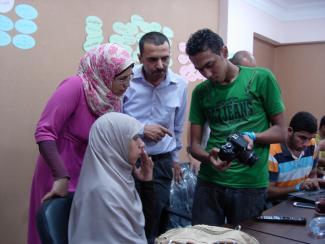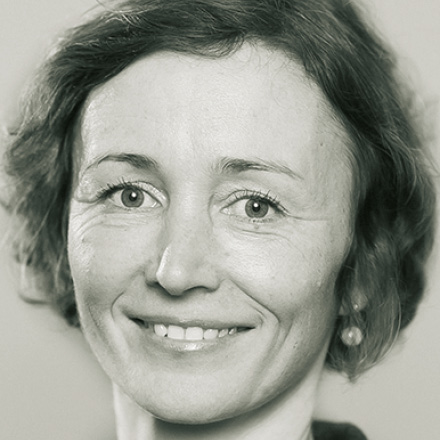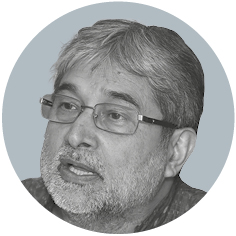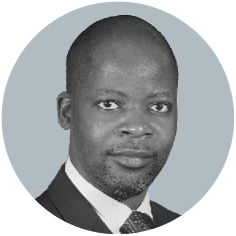Media development
Freedom of expression promotes democracy
 Mysorekar
Mysorekar
During the summer vacations, the girls’ school in Jaba on the West Bank is busy because of the summer camp on media literacy. The focus is on the ability to access, understand and evaluate media information and to create media products such as daily newspapers, Facebook pages and wall newspapers. In a big classroom, 30 girls aged 13 to 16 are sitting in a circle.
Samay Salah Aldin is the instructor. She forms several groups. She is working on behalf of Pyalara, a Palestinian non-governmental organisation (NGO) that gets support from DW Akademie, a German development agency. The NGO instructs teachers and journalism students how to raise awareness for media literacy.
The groups of girls start preparing for an interview. In role play, they practice asking questions and researching information concerning a topic they have picked themselves. Child labour is one, the poor condition of their school another one. The results are posted on a wall newspaper. “Wall newspapers make it possible for students to share their concerns and set wheels of change in motion,” says Helmi Abu Arwan of Pyalara.
A few years ago, the media programmes of international development agencies were largely confined to seminars for professional journalists. In the meantime, the field of activity has become much broader and includes topics such as media literacy, digital platforms and innovative formats for mobile phones. Moreover, more attention is being paid to freedom of information issues and business models. Conventional capacity building is now only one part of the spectrum. Development agencies such as DW Akademie provide comprehensive advisory services. They help prepare civil-society organisations for interaction with policy makers and they cooperate with governments and government agencies on the legislative matters. They share ideas in regional and global networks.
Changing media projects
“The conceptual basis of our work has been refined,” says Petra Berner, who heads the Strategy and Consultancy Department at DW Akademie. “Projects have become longer, more results-oriented and more strategically geared to improving the media landscape.” There has also been a significant improvement in cooperation between the different media-related development agencies. Organisations such as the British BBC Media Action, the Swiss Fondation Hirondelle, Free Press Unlimited in the Netherlands and International Media Support in Denmark are coordinating. As Berner points out, this leads to more coherence.
The focus of development programmes is increasingly on media users. The target group is increasingly the general public, rather than merely editorial departments. In Bolivia, for instance, the non-governmental Fundación UNIR has repeatedly conducted surveys since 2006, asking people what they think of media coverage. The foundation is supported by
a number of European donor agencies.
In the Bolivian capital La Paz and in provincial centres and rural areas across the country, people are invited to complete questionnaires at public places such as markets or bus stations. The surveys are entitled “Tu palabra sobre las noticias” – “Your views on media reporting”. Both media makers and members of their audience appreciate this kind of discourse. The people are keen to tell journalists and the media what they think, and media professionals are grateful for the feedback and pointers on the public’s information needs.
Projects for improving the media system must always be seen in a wider political context. “There’s undoubtedly a close connection between media development and Bolivia’s development,” says Erick Torrico, the coordinator of the Bolivian surveys. “Media development makes a crucial contribution to participation in society, education and communication.”
Free access to information
Freedom of expression and access to information are internationally accepted human rights. They are also crucial for the success of nearly all other development goals. Mary Myers, a freelance consultant who specialises in African media, says that “health, clean water, sanitary facilities, disease control and food security cannot be achieved without conveying information”. She adds, “information is also a key factor in improving access to services, government offices and inoculation programmes.” Moreover, Myers sees free media as vitally important for a country’s political development. Without critical questions from journalists, she says, there is no prospect of better governance.
Considering relevant issues for the post-2015 development agenda, more than 200 organisations have formed a coalition to campaign for the inclusion of freedom of expression and media freedom. In December, Ban Ki-moon, the UN secretary general, published a report on member countries’ consultations concerning the Sustainable Development Goals (SDGs). The report states that press freedom and access to information, freedom of expression, assembly and association are enablers of sustainable development. The matter will be further discussed, and there is a chance that it may become part of the agenda. However, there is considerable opposition, in particular from authoritarian governments.
That comes as no surprise to Mark Nelson of the US Center for Media Assistance (CIMA). He believes that those who are blocking references to freedom of expression and media freedom in the SDG context understand the importance of media only too well: “Media can be very powerful when it comes to demanding accountability or better services – or political change, if necessary.” Nelson stresses that media contribute to creating a political environment in which mistakes can be corrected, ideas are shared and people learn. He sees media development as a driver of economic success. Even though China and other countries have made progress without free media, he is convinced that “it will be difficult for those countries to maintain the momentum of growth if access to information continues to be denied and there are no independent media to report on what is happening in the country.”
Bundling measures
Alexander Görsdorf of Germany’s Federal Ministry for Economic Cooperation and Development (BMZ) considers media freedom as indispensable for the promotion of good governance and civil-society involvement in public affairs. Governments have a duty to promote a diverse and independent media sector, he says, and to guarantee access to information for citizens. The BMZ plans to bundle measures more tightly and, accordingly, created a single budget heading for them in 2014: “Promotion of media, access to information and freedom of expression in cooperation countries”. Görsdorf points out that multi-year support programmes will be possible on this basis.
Like other donors, the BMZ does not only support professional media organisations. It also funds measures implemented by non-governmental organisations and educational institutions. Moreover, the BMZ cooperates with government agencies,
fully aware that the topic “media” often touches on political interests and is thus considered sensitive. This is especially so in countries with major deficits in the areas of freedom of expression and media freedom.
The BMZ and DW Akademie have drafted a strategic model for promoting freedom of expression and access to information in a holistic manner. It identifies four key areas as being crucial for media development:
the political and legal environment,
- professionalism and economic viability of the media sector,
- capacity development and
- broad-based participation: people’s ability to make their voices heard and exercise their rights of participation, for instance in social networks, through community media or civil-society organisations.
Petra Berner of DW Akademie reckons it is essential to take an integrated approach. The primary aim is to involve local partners in projects. She argues that the experiences, skills and priorities that mark developing countries must be taken into account more systematically. In her eyes, a variety of methods should be used moreover.
Alexander Görsdorf of the BMZ believes that development agencies should act in support of disadvantaged population groups: “Accordingly, the BMZ is focussing, for instance, on women and girls in rural areas, youths on urban fringes or ethnic minorities.”
New digital media
Development agencies that are active in media matters are not simply working on new strategies however. They must deal with the fact that digital technology is transforming the media world. Computers, smartphones and the internet are allowing young knowledge societies to bud in Africa and Asia.
The Kenyan capital Nairobi, for example, has a lively scene of digital innovators. Thanks to its advantageous geographical location, Kenya got access to major submarine fibre-optic cables earlier than other African countries and drafted an initial IT strategy as early as 2006. Today, Kenya is a world leader in terms of mobile payment services such as M-Pesa.
“Digital technology opens up possibilities for us in all areas,” says Eric Chinje. He heads the organisation African Media Initiative in Nairobi, which strives to improve the quality of African media. High on Chinje’s list of priorities is networking the different actors. He organises conferences on media development that convene media professionals and representatives of regional media associations, scholars, civil-society activists and staff of international development agencies. “Every decision that is taken needs to be based on reliable information,” he says. “The media contribute to civic empowerment and improve the quality of societal decisions – for instance, on whether a road or a school is built.”
Digital media make it easier for civil-society groups to operate and communicate. The range of interactive audio-visual formats also makes it possible to reach people who can barely read or write. Text messages, on the other hand, enable small farmers in rural parts of Africa to check market prices and assess their market prospects. Journalists in danger can use text messages to call for help. In any case, the digitisation of the media requires new training concepts. Innovative curricula are required both for practical professional training and for academic education.
Petra Berner of DW Akademie points out yet another crucial requirement for the development of sustainable media services: financial viability is needed to make media outlets truly independent. Accordingly, solid business models and strong financing systems are indispensable.
At the Summer Camp Media Literacy in Jaba, Alaa Ahmad, a 14-year old student, has learned to ask relevant questions. She now appreciates competent media work: “I have become more confident. I find it encouraging when everybody at school reads and hears what I write and say.”
Alexander Matschke is a freelance journalist and researcher at DW Akademie. alexander.matschke@dw.de



